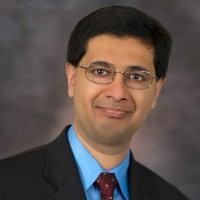Indiaspora, a nonprofit organization of global Indian diaspora leaders from diverse backgrounds and professions that work to build stronger communities with a shared culture of strategic giving and inspiring social change, has condemned the racism in the United States.
“As part of the Indian diaspora, we have both benefited from the opportunities and faced the challenges that come with living in multiracial societies,” Indiaspora said in a statement. “At Indiaspora, we stand strongly and squarely with the African-American community, as we strive together for a more just America. Their struggle is ours too. Indeed, aided by allies from different communities, it needs to be our national purpose.”
The statement said that the Indian-American diaspora is mindful of the fact that had it not been for the civil rights movement and the Immigration and Naturalization Act of 1965, many of Indians wouldn’t be in the US today. B
“But the letter of the law does not inevitably or automatically translate into the experience of the people. We too are not immune from racial persecution, as demonstrated by well chronicled events that have occured in the distant and recent past,” said the statement. “So we have more work to do. More to do for George Floyd’s 6-year old daughter, Gianna, who said “daddy changed the world!” Let it truly be so, for we cannot, we must not, disappoint her or betray her conviction. She speaks for all of us, and our sons and daughters, who must never be defined by the color of their skin.”
Indiaspora resolved to work together, hand in hand, with the African-American and other minority communities, “until we can all be assured of successfully encashing our collective promissory note, set forth in America’s constitutional declaration that we are all created equal, in the bank of justice. Let us end systemic racism.”
Indiaspora also held a virtual Civil Rights Town Hall June 4 to discuss how the Indian diaspora community can show intra-racial solidarity during this time, and how our community can contribute to end systemic racism.
“We felt an urgent need for action, and wanted to create a space for our community to listen, become more educated on the issues,, and voice their ideas,“ said Indiaspora Executive Director Sanjeev Joshipura. “We were deeply moved by the passion and resolve of the community.”
Civil rights leaders who provided context on the current Black Lives Matter movement during the town hall included Vanita Gupta, President and CEO of The Leadership Conference on Civil and Human Rights; Reverend CarlMcCluster, founder of Faith Community Development Corporation; and DJ Patil, Head of technology at Devoted Health and former U.S. Chief Data Scientist in the Obama administration.
“I think [Indiaspora’s] statement was so incredibly powerful… this need to show solidarity, to stand up for each other as our communities have been feeling under siege at different points of our history, certainly at different points in the last several years,” said Vanita Gupta, a litigator who headed the civil rights division in the Department of Justice in President Obama’s administration.
Reverend Carl McCluster, who has served as the Senior Pastor of Shiloh Baptist Church in Bridgeport, Connecticut for more than 23 years, also voiced the need for solidarity.
“There’s a saying that we have in the African American community, that we might have come from Africa, or we might have come from India, or we might have come from Latin America, all in different boats but we are all in the same boat now. An act or atrocity against one person is an act or an atrocity against all.”
The Reverend mentioned that Indians also have faced discrimination, though the African American community has experienced the brunt of it.
DJ Patil, who served as U.S. Chief Data Scientist in President Obama’s administration, discussed the disproportionate effect of COVID-19 on the African American community, including double the mortality rate for African Americans.
“What I worry about is that COVID is about to become this accelerant that separates society again in this fundamental way. Those programs that break the preschool-to-prison pipeline are all going to get eradicated because there is no money,” said DJ, who is currently volunteering at California’s State Emergency Operations Command Center, helping with COVID-19 response efforts as well as coordination efforts with law enforcement. “I think we all have to ask ourselves, ‘how are we going to fill that gap?’”
Indiaspora leaders in the town hall also discussed how to be agents to end systemic racism from their own community work and organizing, including Chairman of the India Philanthropy Alliance Deepak Raj, who offered a statement of solidarity with the Black community; Rajmohan Gandhi, research professor at the Center for South Asian and Middle Eastern Studies, University of Illinois at Urbana-Champaign and grandson of Mahatma Gandhi; Monika Kalra Varma, Executive Director at Lawyers’ Committee for Civil Rights of the San Francisco Bay Area; Shekar Narasimhan, founder of AAPI Victory Fund, a political SuperPAC for the Asian American Pacific Islander community; Sridar Iyengar, founder of 360+, a youth leadership collective that provides travel opportunities for underprivileged students; and Shefali Mehta, founder and lead principal of sustainable consulting firm Open Rivers.
From this discussion, several points emerged as action items in creating more inclusion and socioeconomic opportunities for communities of color, encompassing the realm of institution-building, promoting candid conversations among our networks, proactively advocating for changing the governance of organizations, building mentoring partnerships, and greater civic engagement.














